Coronavirus Aid, Relief, and Economic Security Act Bankruptcy Protections Have Been Extended
With widespread vaccinations on the horizon, the coronavirus pandemic may finally be drawing to a close in the foreseeable future. However, there is likely to be an economic aftershock that will be felt for years to come. To mitigate these negative effects, lawmakers passed the Coronavirus Aid, Relief, and Economic Security (CARES) Act on March 27, 2020. Now, these protections have been extended until March 27, 2022, by a majority vote in the House of Representatives. The bill, which was approved by a vote of 399-14, now heads to the Senate.
CARES Act Bankruptcy Protections
One of the major parts of the CARES Act were stimulus payments for eligible Americans. Generally, those who make $75,000 or less as an individual or $150,000 or less combined as a married couple qualify for stimulus payments. Especially for the millions of Americans who lost their jobs or had their income reduced due to the pandemic, these stimulus checks can be a godsend. However, they are more effective when used to pay living expenses rather than to pay off debt. If someone already has a debt problem that has been aggravated by the pandemic, stimulus checks are at most a temporary bandage over a deeper issue. That’s why pandemic benefits like stimulus checks and increased unemployment benefits are generally exempt in bankruptcy. They do not count as income for bankruptcy qualification purposes, and trustees can’t seize them to pay towards the bankruptcy estate.
The CARES Act provided additional flexibility for bankruptcy filers. The debt limit for the small business provision of Chapter 11 was increased from $2.7 million to $7.5 million. The CARES Act guarantees that bankruptcy filers will still be eligible for mortgage forgiveness, eviction moratoriums, and exempt from utility shutoffs. It also allows those in an active Chapter 13 to apply for a financial hardship reorganization. These bankruptcy protections are among those that have been extended until March 27, 2022.
Types of Consumer Bankruptcy In Phoenix, Arizona
If the guarantee that further pandemic stimulus payments are exempt from bankruptcy makes you feel more confident about filing bankruptcy, it’s time to decide which chapter to file.
For those who have lost income due to the pandemic, the silver lining may be that they now qualify for Chapter 7 bankruptcy. Chapter 7 bankruptcy is a liquidation bankruptcy only available to those under certain income limits. Only those who make less than their state’s median income based on family size, or pass the Means Test, can file Chapter 7. The filer can only keep their assets if they are protected by state bankruptcy exemptions, or if their state allows them to use applicable federal exemptions. While the limitations in Chapter 7 are strict, the benefits it provides are significant. Most unsecured debts, such as credit cards, medical bills, and personal loans, are discharged in Chapter 7. The process generally only takes between 4 and 6 months. Once debts are discharged, the debtor can move forward with a fresh financial slate, and take steps to rebuild their credit.
Chapter 13 bankruptcy is a payment plan that lasts 3-5 years. The plan will last 3 years for those who make less than their state’s median income, and 5 years for those who make more than their state’s median income. The plan will be organized based on the types and amounts of debts, and the debtor’s disposable monthly income. Debts will be paid in an order of four different categories, starting with legal and trustee fees and ending with unsecured debts like medical bills and credit cards. These debts can be discharged at the end of the payment plan, even if they aren’t paid in full. The debtor will be protected from creditors by the Automatic Stay for the entire 3-5 years, with limited exceptions.
Chapter 7 and Chapter 13 have similarities in requirements and benefits. The person seeking to declare bankruptcy must file a petition- a long and detailed legal document describing the debtor’s financial situation- in the appropriate jurisdiction. This petition will be reviewed by an attorney appointed to their case known as a trustee. Debtors must complete two credit counseling courses in both chapters, one before filing and one within the 341 hearing. Both chapters require the debtor to attend a hearing known as a 341 Meeting of Creditors. Filing either chapter activates the Automatic Stay, which stops most forms of creditor collection. This includes wage garnishments, bank levies, foreclosures, repossessions, utility shutoffs, and more.
There are reasons besides income restrictions and asset exemptions that someone might choose to file Chapter 13 bankruptcy instead of a Phoenix Chapter 7 bankruptcy. There are mandatory waiting periods between bankruptcy filings, which are generally shorter when the subsequent bankruptcy is a Chapter 13. This can make Chapter 13 the only option for someone facing an emergency situation like a foreclosure or repossession. If someone is behind on child support and other nondischargeable debts, Chapter 13 will allow an opportunity to catch up on these payments where Chapter 7 would not. Chapter 13 also allows for the opportunity to discharge secondary home mortgages, and provides a far longer Automatic Stay period.
Contact Our Phoenix Bankruptcy Attorneys For Assistance
Are you struggling financially because of the pandemic? Bankruptcy may be a viable solution to your financial issues, and the extension of the CARES Act bankruptcy protections acknowledges that. However, filing your bankruptcy incorrectly could create more hassles like extra fines, asset seizures, and even dismissal. This will cost you in legal fees, and your debts will remain with you. An experienced bankruptcy attorney in Phoenix will help you avoid these potential pitfalls. Whether it’s calculating your disposable monthly income, determining your eligibility, drafting your petition, dealing with your creditors, and more, our staff and attorneys are here to help. To learn more about the benefits of filing bankruptcy with our firm, as well as our flexible payment options that will get you filed for as low as $0 down, schedule your free consultation today. Our Phoenix Bankruptcy attorneys can help.
Contact our Phoenix Bankruptcy Law office or use our online form to request your free phone consultation.
Phoenix Bankruptcy Lawyers
668 N. 44th St. Set 320
Phoenix, Arizona 85008
Phone: (602) 509-0955
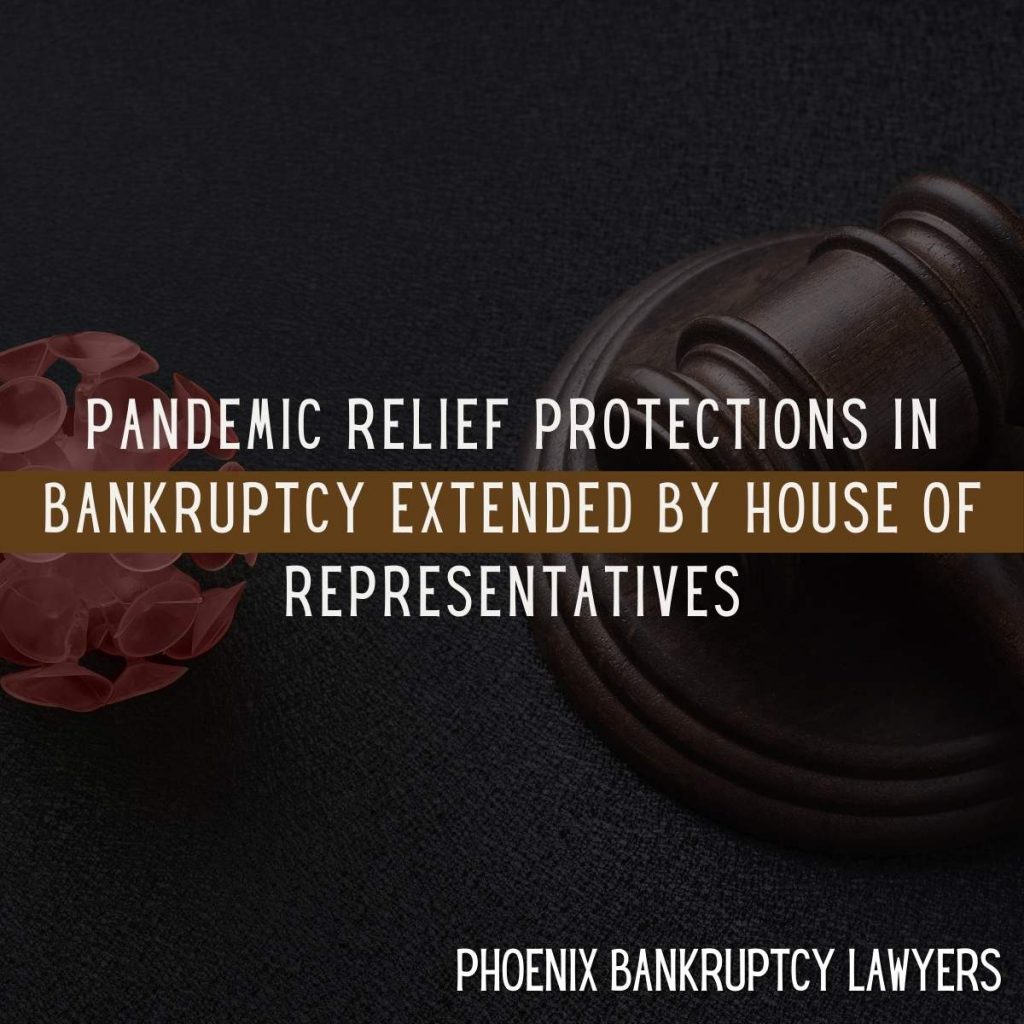
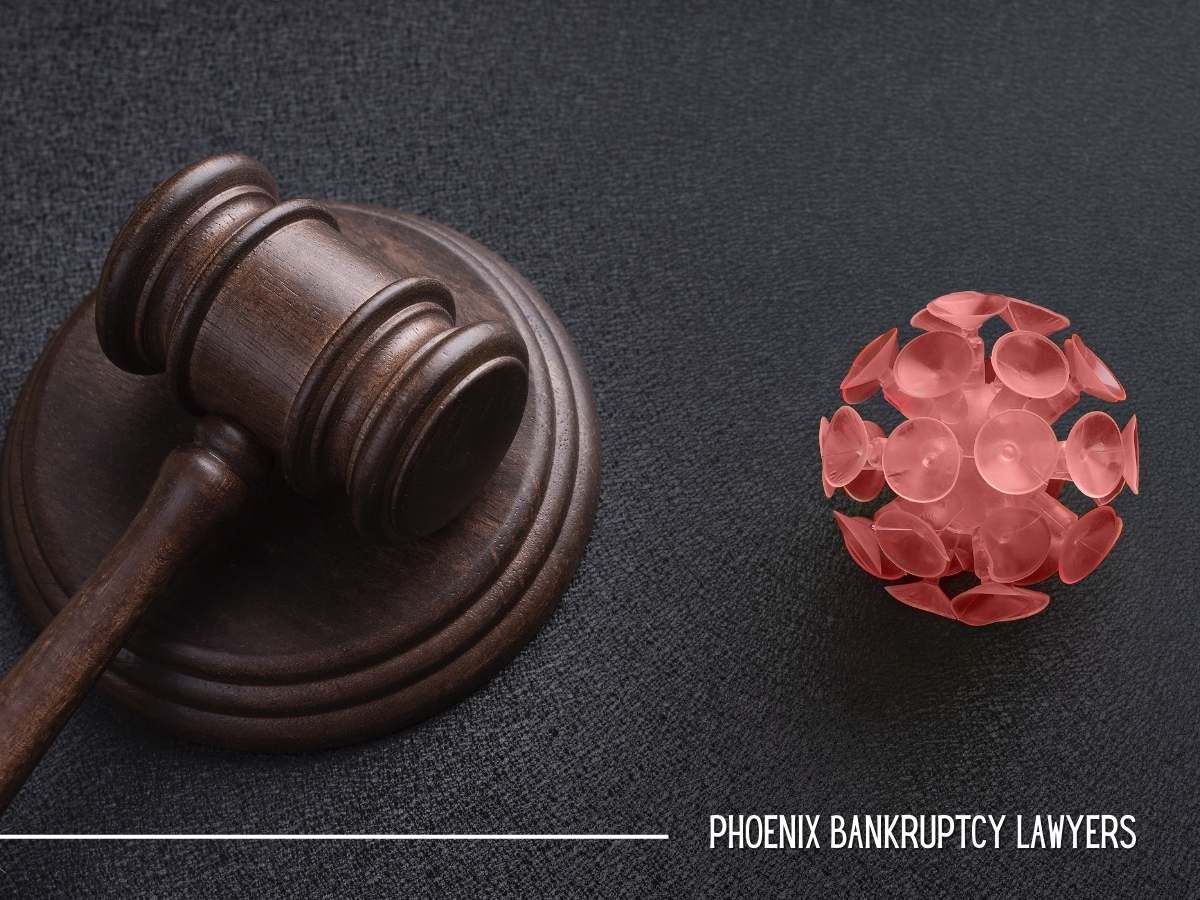
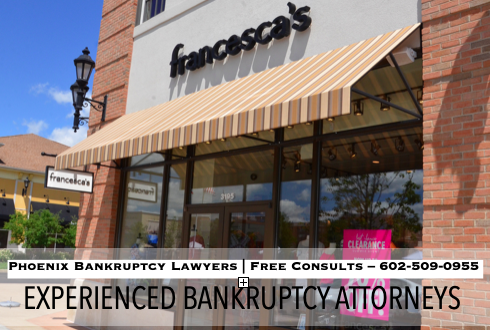

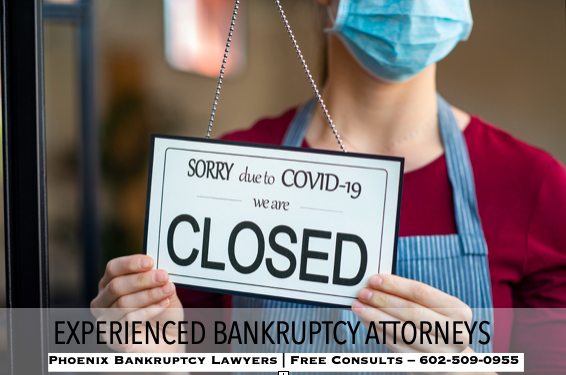
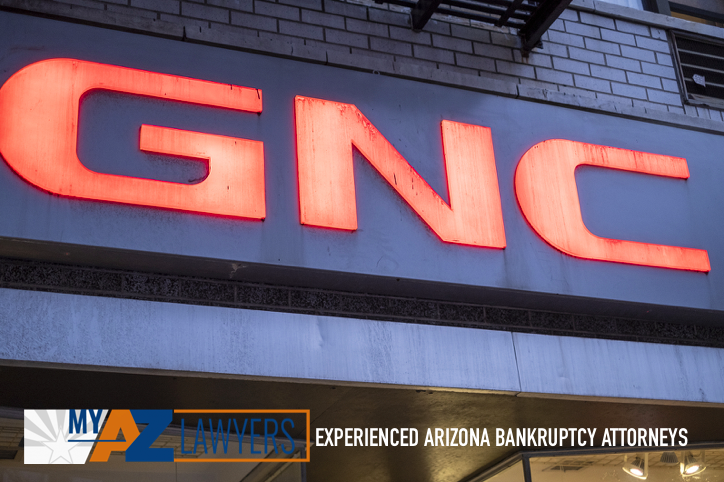
 As the coronavirus pandemic continues to wreak havoc on the global economy, more and more companies are filing for bankruptcy. This year has already seen retail giants like Neiman Marcus, JC Penney, J Crew, and True Religion file for Chapter 11 Bankruptcy. Huge fitness companies like Gold’s Gym and 24 Hour Fitness have also filed for bankruptcy protection amid the Coronavirus Pandemic. The latest big chain to file for Chapter 11 bankruptcy protection is GNC. The retail chain, which specializes in vitamins and dietary supplements, filed its bankruptcy petition June 23, 2020.
As the coronavirus pandemic continues to wreak havoc on the global economy, more and more companies are filing for bankruptcy. This year has already seen retail giants like Neiman Marcus, JC Penney, J Crew, and True Religion file for Chapter 11 Bankruptcy. Huge fitness companies like Gold’s Gym and 24 Hour Fitness have also filed for bankruptcy protection amid the Coronavirus Pandemic. The latest big chain to file for Chapter 11 bankruptcy protection is GNC. The retail chain, which specializes in vitamins and dietary supplements, filed its bankruptcy petition June 23, 2020. 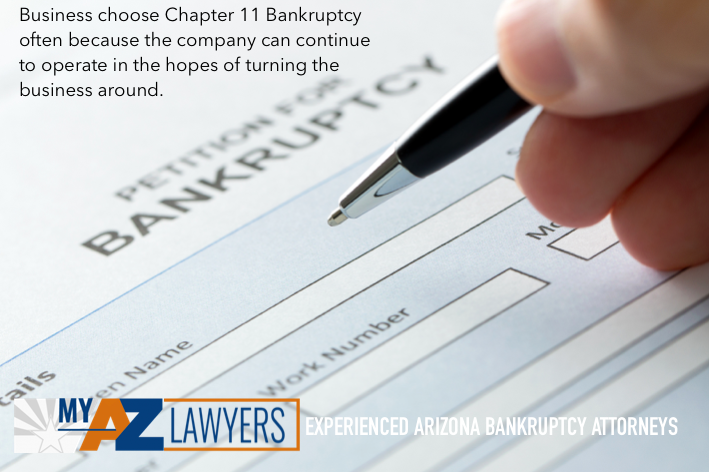 GNC intends to remain open during and after the
GNC intends to remain open during and after the 
 Most individual bankruptcies are filed under either Chapter 7 or Chapter 13. Chapter 7 bankruptcy has strict income limits and the filer will have to surrender any assets with more equity than that state’s exemptions. Most unsecured non-priority debts will be discharged in Chapter 7. Credit cards, medical bills, repossession deficiencies, and more will be liquidated without any repayment. However, there is a caveat: debts that were fraudulently incurred can’t be discharged in Chapter 7.
Most individual bankruptcies are filed under either Chapter 7 or Chapter 13. Chapter 7 bankruptcy has strict income limits and the filer will have to surrender any assets with more equity than that state’s exemptions. Most unsecured non-priority debts will be discharged in Chapter 7. Credit cards, medical bills, repossession deficiencies, and more will be liquidated without any repayment. However, there is a caveat: debts that were fraudulently incurred can’t be discharged in Chapter 7.  Gambling debts are typically accrued in a few different ways. If you took out personal loans or credit cards to pay for your gambling, these debts may be discharged in bankruptcy. They will be wiped clean in Chapter 7 bankruptcy, and are lower priority debts that may only be partially paid before discharge through Chapter 13 bankruptcy.
Gambling debts are typically accrued in a few different ways. If you took out personal loans or credit cards to pay for your gambling, these debts may be discharged in bankruptcy. They will be wiped clean in Chapter 7 bankruptcy, and are lower priority debts that may only be partially paid before discharge through Chapter 13 bankruptcy. 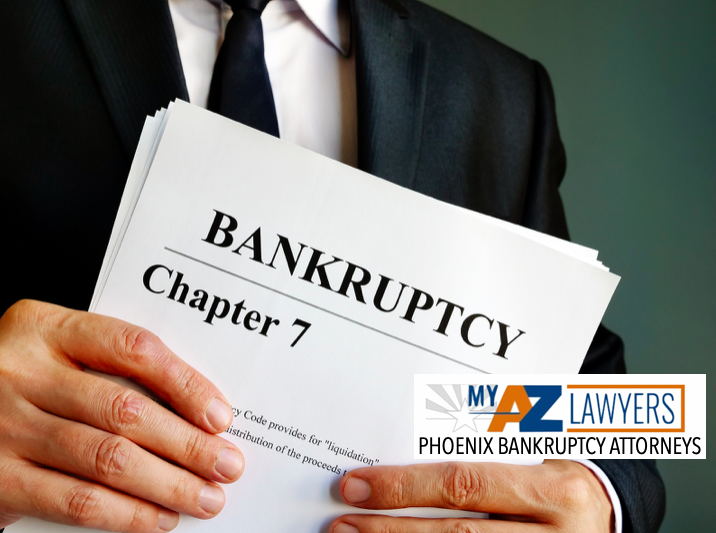
 Chapter seven bankruptcy is probably the most frequent kind of bankruptcy filed in the United States. Nevertheless, not everybody is permitted to obtain their debts discharged under Chapter seven of the U.S. Bankruptcy Code, so the following are a few simple demands for a situation. To understand whether you qualify for this particular case type, talk with a
Chapter seven bankruptcy is probably the most frequent kind of bankruptcy filed in the United States. Nevertheless, not everybody is permitted to obtain their debts discharged under Chapter seven of the U.S. Bankruptcy Code, so the following are a few simple demands for a situation. To understand whether you qualify for this particular case type, talk with a  Talk with a Chapter seven
Talk with a Chapter seven